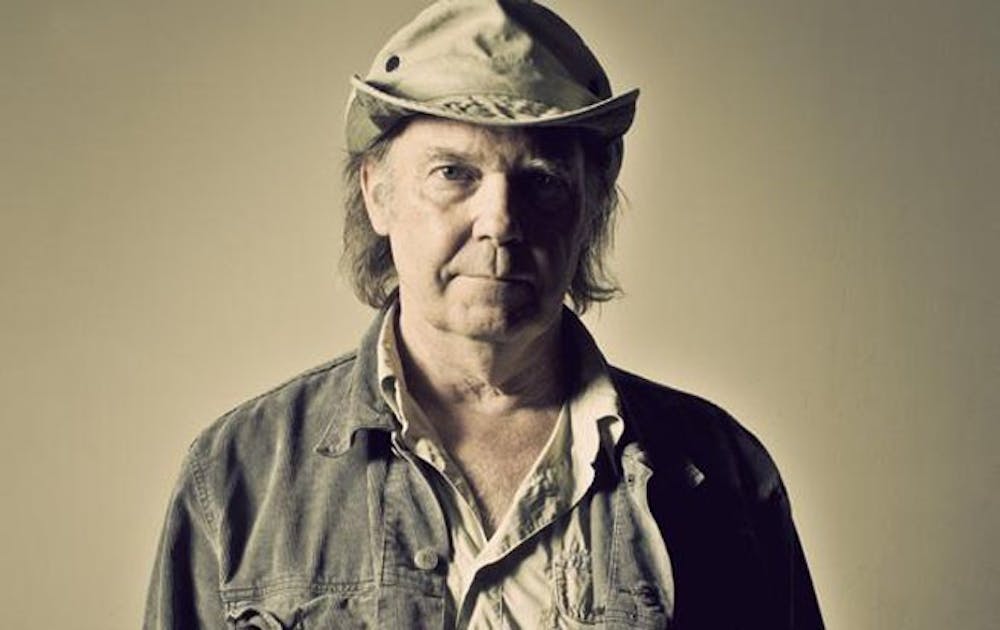When I imagine Neil Young in my mind’s eye, the picture I see is from a YouTube video of “Old Man” from 1971. He’s so damn young. Long locks of brown hair extend past his shoulders. He still has the last remnants of baby fat on his unwrinkled cheeks. His head is cocked slightly to his left so that he looks a yard ahead of his feet when he plays. And singing that song, singing about how he finally understands his father… I don’t know how he can bring himself to play that song now—now that he’s an old man.
Nobody writes a memoir without getting at least a little nostalgic. On Psychedelic Pill, Neil Young’s recently released collaboration album with long-time partners Crazy Horse, the first twenty-seven minutes is a tune called “Driftin’ Back.” It’s a slow, methodical jam session. Nobody hurries, it’s as if there’s nowhere to go. In his new memoir Waging Heavy Peace, Young has an image that describes it perfectly: the song “graze[s] like a herd of buffalo.” The whole album is filled with songs that have the same attitude. The psych rock is quietly beautiful, if a little tired. None of the tunes have the slightest irony or embellishment. It’s just raw American music.
Young is in a grazing mood now. His memoir is less an attempt to give his life a narrative arc than it is an opportunity for Young to say whatever comes to his mind. The chapters come together with no real glue, no easy chronology. For people who don’t know the ins and outs of Young’s career, who have not been awestruck by his songs, there’s little in the memoir that’s of great intrigue. These are the stories I imagine Young would tell if you were lucky enough to sit next to him on an airplane. The stories are oddly quotidian: he writes a lot about cars he used to own, his recently deceased friends and the paneling that he put up in his old cabin. He says surprisingly little about his music. He doesn’t glamorize his life, and he doesn’t seem worried about his legacy. Instead what’s here is a picture of Young as an old man: his thoughts, his regrets and his lingering hopes.
Neil’s father, a fiction writer, used to tell him: “just write everyday and see what comes out.” If Neil wasn’t doing that before, he’s doing it now. The memoir was written at a time when Neil had just recently kicked his long-standing habits of both pot and alcohol—a time when Neil didn’t have the inspiration to make music. “I need to go away and replenish,” he writes. “This book is one thing I am doing to stay off the stage.” It’s a humble goal, and Young doesn’t have any delusions that the new book—and likewise his new music—is anything grander than it is. Rather both are works that Neil needed to do, and, thankfully, we needed him to do, too.
Get The Chronicle straight to your inbox
Signup for our weekly newsletter. Cancel at any time.

